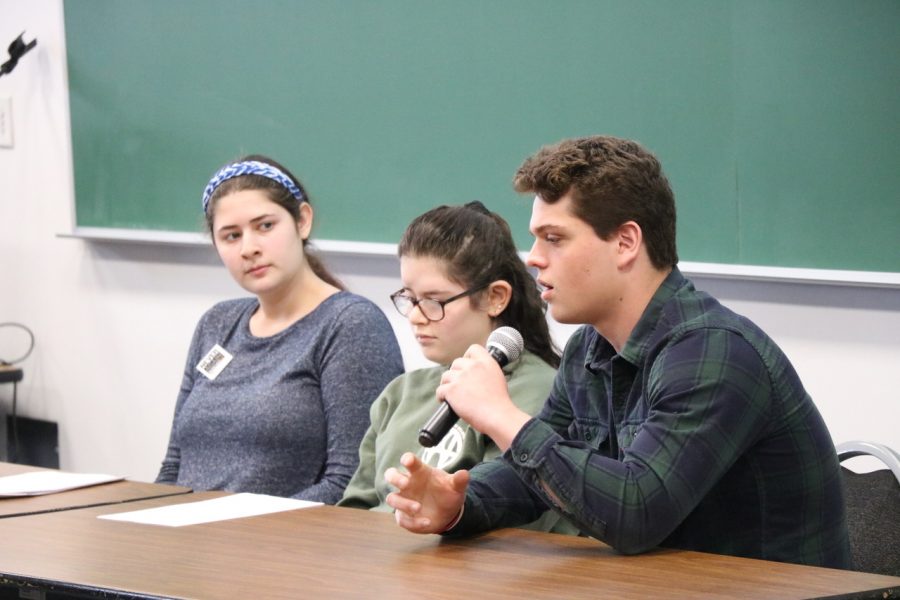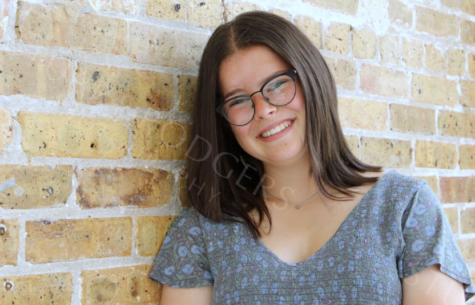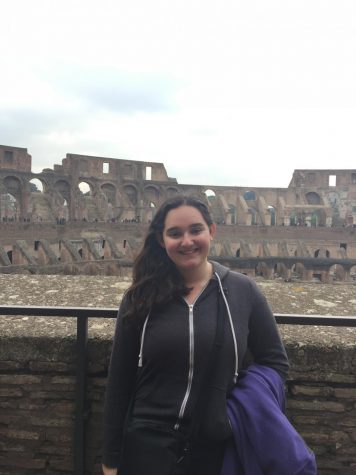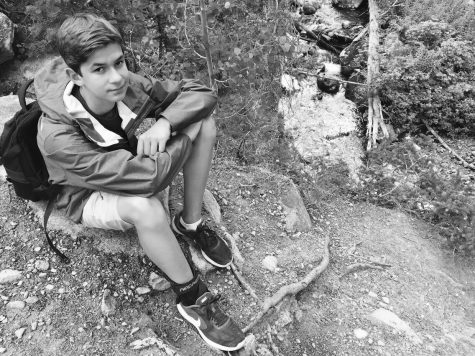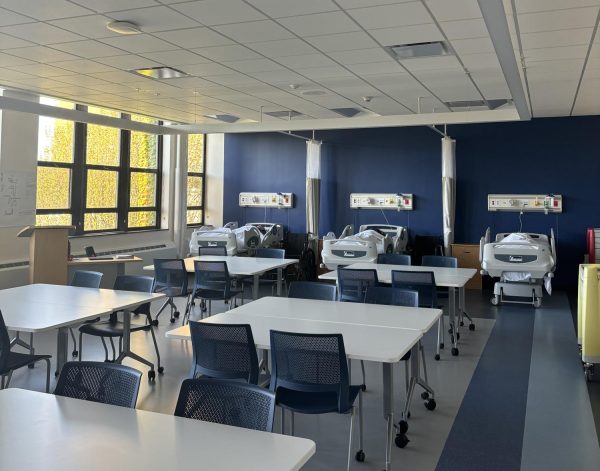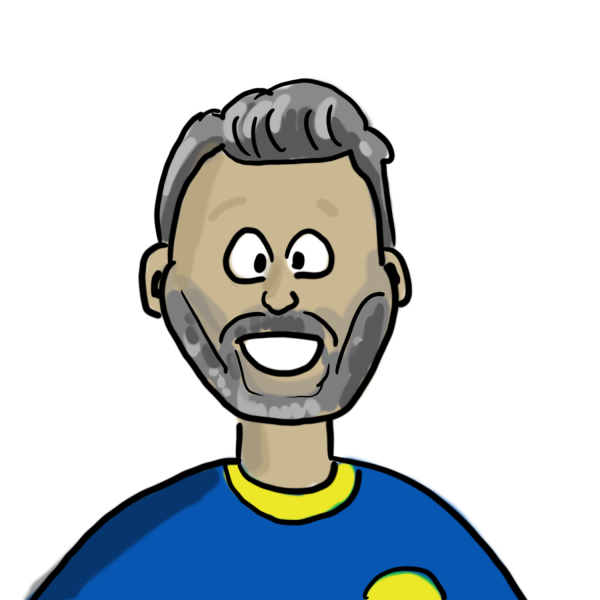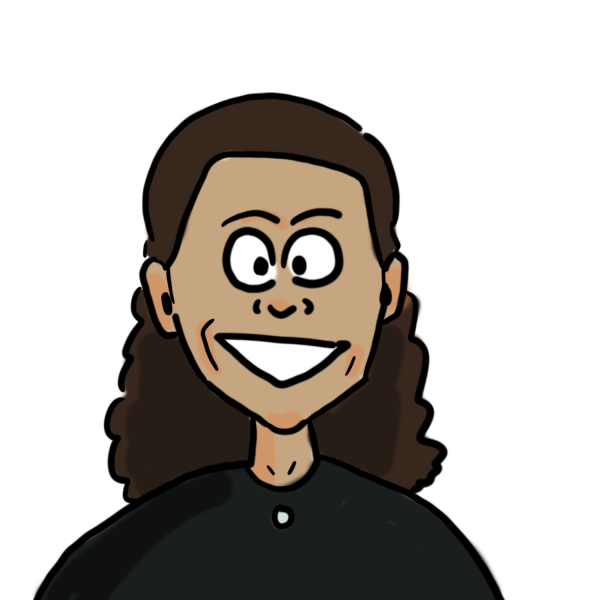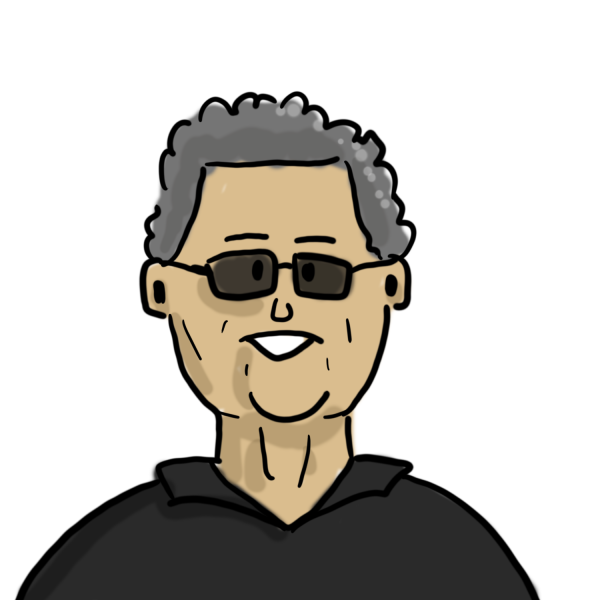Holocaust Remembrance Week focuses on anti-semitism
Students present at the Grandchildren of Survivors panel.
April 18, 2019
ETHS Holocaust Remembrance Week occurred the week of April 1 with the theme of Anti-Semitism: There is Nothing New Under the Sun.
“Everyone was pretty much in agreement that [the theme] should be about the history of anti-Semitism because it’s really on the rise and it feels very timely. It always kind of feels timely, but especially after the massacre at the Squirrel Hill synagogue, the Tree of Life,” Holocaust Remembrance Week sponsor Aaron Becker explained.
According to the definitition by the International Holocaust Remembrance Alliance, “anti-Semitism is a certain perception of Jews, which may be expressed as hatred toward Jews.”
“[Anti-Semitism] is something that’s [always] been around. It wasn’t born at the Holocaust. Since there were Jews there has been anti-Semitism,” Becker said.
This theme guided presentations for Holocaust Remembrance Week. Monday, April 1 was “House Calls,” where students visited teacher’s classrooms to present about the history of anti-Semitism. The presentation explained what anti-Semitism means and what it can look like.
“Every student put their own print on it, they kind of made it their own. They had their own stories, their own personal experiences… I’ve only gotten good feedback,” Becker said.
The presentation emphasized that anti-Semitism was one of the root causes of the Holocaust and that anti-Semitism did not disappear afterwards.
“Because the theme was anti-Semitism, it was a lot more challenging than other years when it was about just history or about refugees because it was a lot more personal to us,” senior Ellie Rosenberg said. “[It] had some controversial parts, but it challenged us all in a really good way and made us think about how anti-Semitism impacts us and impacts the world.”
Some examples of anti-Semitism today includes the prevalence of neo-Nazi/alt-right groups, leftest groups guising anti-Semitism as criticism of Israel, the 2017 Charlottesville Rally and the 2018 Pittsburgh synagogue shooting.
“I feel impacted whenever there’s an anti-Semetic act around the world, that could happen to someone like me, and I’m sure that’s how a lot of other people feel… we tried to address that this week,” Rosenberg said.
During the presentations, some students shared examples where they personally experienced anti-Semitism, including some local events.
“Someone I know posted on their snapchat story where their friend said “I wish the Holocaust had killed all the Jews” or stuff like that. That definitely felt like a very personal attack,” senior Arielle Weiss said. “Just to tell people when they crossed the line into anti-Semitism is really important to teach.”
On Tuesday April 2, survivors came to tell their stories. On Wednesday April 3, professors and scholars delivered presentations pertaining to anti-Semitism and/or the Holocaust. Thursday April 4 was arts and culture day, featuring a the film Lady in #6: Music Saved My Life and guest artists presenting on Roma and Klezmer music.
Friday was action day. Students presented about anti-Semitism on college campuses and grandchildren of survivors told their family’s stories.
“[The Grandchildren of Survivors panel] definitely fits in because it’s about student action. It’s not only survivors themselves that can talk about the Holocaust, but also people that it impacted, students that are in school today, because we’re grandchildren and great-grandchilren of survivors. It’s definitely an action that students are taking to spread awareness,” Weiss said.
Ultimately, the goal of Holocaust Remembrance Week year was for students to develop an understanding about other people’s oppression and to recognize that oppression against Jewish people during the Holocaust.
“I hope that students realize that the Holocaust didn’t just occur as one event, but there were a lot of causes leading up to it and these factors still have a role in our world today,” Rosenberg said. “The Holocaust wasn’t just something that happened to Jewish people, it happened to people of many groups, and people of groups who weren’t affected by the Holocaust can still be affected by similar factors.”
Holocaust Survivor Presentations
During Holocaust Remembrance Week, ETHS students were privileged to hear the stories of three survivors, Edith Westerfeld-Schumer, Nicole Terry and Beatrice Muchman.
Edith Westerfeld-Schumer and Fern Schumer-Chapman
The first survivors to share their stories were mother Edith Westerfeld-Schumer and daugher Fern Schumer-Chapman. Westerfeld-Schumer is a 91 year-old Holocaust survivor and co-author of a moving book detailing her story. Westerfeld-Schumer was part of the One Thousand Children Project, when approximately one thousand children were sent to America to flee persecution.
According to the YIVO Institute for Jewish Research, “these children were relocated across the United States, but were rarely reunited with their parents.”
Westerfeld-Schumer was never reunited with her parents, as they were killed by the Nazis after sending her to America from Germany.
Once Westerfeld-Schumer was an adult, she sat down with her daughter, Schumer-Chapman, to write the biography, Motherland: Beyond the Holocaust: A Mother-Daughter Journey to Reclaim the Past. The book explains Westerfeld-Schumer’s emotional story, as well as following the time she decided to go back with her grown daughter, Schumer-Chapman to the town she had left years before.
Nicole Terry
Nicole Terry, 94, comes from a long line of French Jews. However, during the war, she and her family had to leave France, causing them to become refugees in southern France. She was then hidden by nuns in a Christian convent, making her a part of the Hidden Child group.
Hidden Children is a term often used for Jewish children who were separated from their families and hidden by non-Jews. The people who took them in often changed their identity and had the children pose as non-Jews in order to save their lives.
Terry published a book with 23 other Hidden Children about their experiences during the Holocaust. This book, titled Out of Chaos: Hidden Children Remember the Holocaust, is designed to give voices back to the children who lost them when they were forced to hide their Jewish identities.
Beatrice Muchman
Beatrice Muchman, 86, was born in Germany, but had to flee to Brussels, Belgium once the Nazis invaded.
Muchman’s parents became afraid for her safety in 1942, when the Nazis invaded Belgium, and so they entrusted her and her cousin to two Catholic women. Her biological parents both perished in the Holocaust, though Muchman stated that her Godmother took on a maternal role in her life. She grew up believing that her Jewish parents had abandoned her. Later on in Muchman’s life, she was adopted by one of her uncles who had immigrated to America.
Muchman wrote a memoir about her life as a child, which documented her life of confusion and instability. The memoir is titled A Young Girl’s Holocaust Memoir, and it contains pictures of documents from the Holocaust as well as her personal story.
Professor Presentations
Barry Wimpfheimer and Sarah Cushman from Northwestern alongside Aryeh Bernstein spoke on Tuesday April 2.
Barry Wimpfheimer is an associate professor of religious studies at Northwestern University. He is also an expert on the Talmud/Jewish Law. Professor Wimpfheimer was the first professor to speak, and he provided background on the history of anti-Semitism.
Sarah Cushman is the director of the Holocaust Educational Foundation at Northwestern University. She holds a PhD in the field and is an expert in women’s history relating to the Holocaust.
Cushman presented on the history and linkage between anti-Semitism, Jewish persecution and the persecution of homosexual communities.
Finally, Aryeh Bernstein spoke. Bernstein is the Staff Educator for Farm Forward’s Jewish Initiative for Animals, Director of the Justice Fellowship in Chicago and a coordinator and teacher for Mishkan Chicago’s Social Justice Beit Midrash.
Bernstein presented on the ways that anti-Semitism manifests itself in response to White supremacy. He also presented about where anti-Semitism is continuous with historical patterns and new situations that have arisen recently.
Arts and Culture
Lady in #6: Music Saved My Life is a short documentary that tells the story of Alice Herz-Sommer. She was interviewed for the film at age 109, at the time making her the world’s oldest Holocaust survivor (she has since passed away in 2014 at age 110).
Herz-Sommer was a professional pianist from a religious Jewish background. At age 19 she and her young son were sent to Theresienstadt concentration camp/ghetto, where she was forced to perform over 100 concerts. Herz-Sommer consistently found optimism due to music. One line she repeats throughout the film is “music is a dream.”
The interactions between Jewish and Roma peoples were also highlighted; Jutta & the Hi-Dukes, a trio that specializes in traditional European folk music, led this interactive presentation. They played a mix of modern and traditional instruments as they explained the connections between Roma and Klezmer music, the traditional music of Gypsies and Jews and why both groups were targeted during the Holocaust.
Grandchildren of Survivors Panel
Three students presented about the experiences their grandparents or great-grandparents faced during the Holocaust.
Stories included how grandparents were liberated from concentration camps, lived in displaced persons camps afterward or were able to flee before they could be placed in a ghetto.
“I [talked] about my grandpa’s, my mom’s dad, story and then [shared] a poem about my grandma, who’s my dad’s mom. Then we show[ed] video clips of survivors. I show[ed] a video clip of my great-grandma,” Weiss explained.
Students on the panel also had the opportunity to answer questions about how having grandparents who survived the Holocaust affects them personally.
“It was really student driven, student oriented, student designed… [it] was probably the most moving thing of the whole week,” Becker explained.
Anti-Semitsm on College Campuses
The “Anti-Semitism on College Campuses” event was hosted by Jona Elam, Leah Oppenheimer and Arielle Weiss. The presentation encompassed a lot of the college experience for Jewish students and covered topics such as how anti-Semitism impacts college students, how Jewish students can choose a safe school and what anti-Semitism actually looks like.
Elam and Oppenheimer spoke from personal experience during their presentation. It’s a must for both of them to find a school that keeps them safe.
“It’s really important for me to choose a school that’s not anti-Semetic and has a strong Hillel, and also has a strong Jewish community. That’s been a big factor in visiting and selecting a college,” Oppenheimer says.
Elam, who is only a junior, has already begun to consider the role her religion will play in her selection process.
“I think that when making your decision, you need to be going to a college where you’re going to feel safe, and you’re going to feel comfortable, and you feel like you can make your voice heard without experiencing backlash or physical acts of violence,” Elam explained.
After the presentation was over, the presenters asked members of the audience to fit their reflections to the information they had just received into one word. While the presenters nodded their heads in agreement, words like “disturbed,” “surprised,” “shocked,” and “scared” floated around the room. This reaction seemed to be expected by Elam.
“I think at Evanston there’s this belief that because you study the Holocaust in middle school that we’re done, and that we don’t need to talk about it anymore… but in reality genocide is awful. And any group of people that has experienced such an extreme form of oppression still deserves to talk about that,” Elam said.


